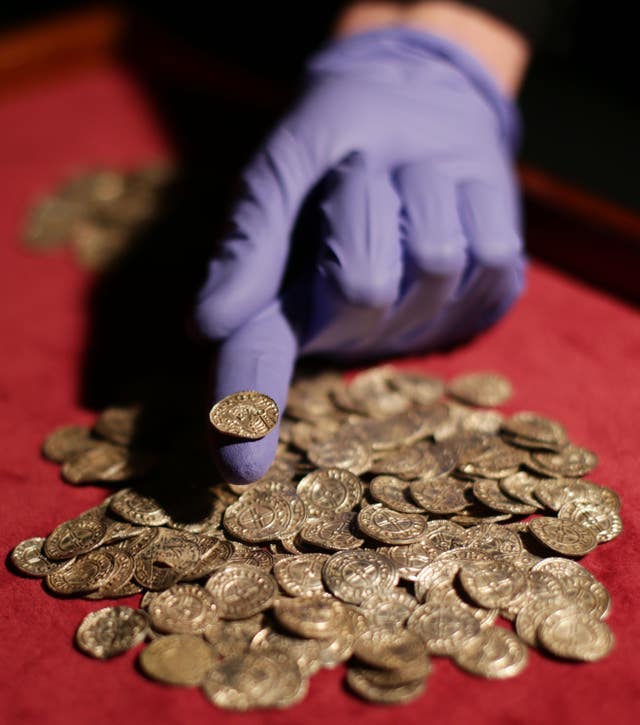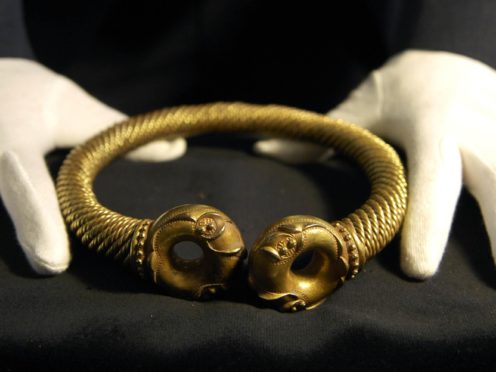The Government has announced new plans to keep the UK’s ancient treasure in museums and out of the hands of profiteers.
Buried treasure of cultural importance to the UK is being lost to private bidders online, ministers have warned.
In 2017 there were a record number – 1,267 – of archaeological finds in the UK, many made by amateur hobbyists, but only a narrow selection can be acquired by the Crown then offered to museums.
Unearthed treasures are being sold online without being declared, and there are currently no sanctions on those buying Britain’s artefacts.
The Government is seeking to change the definition of treasure to keep finds on public display and stop them being put up for private sale.
Heritage minister Michael Ellis said: “The search for buried treasure has captivated people’s imagination for centuries and in recent years the number of finds has continued to increase.
“However some outstanding artefacts of great archaeological and cultural importance have been lost to private sellers simply because they do not meet the current criteria for treasure.
“These new proposals will help our museums acquire these treasures and make it harder for nationally important finds to be sold for personal profit.”
The Government is looking at making it a requirement for those buying artefacts to report their purchases as treasure.
Originally medieval, historic laws defined treasure as a find more than 300 years old, consisting of gold, silver or another precious metal, where an owner cannot be found.

In 2010 an important Roman helmet was sold to a private bidder for £2.3 million, avoiding treasure laws because it was made of copper.
The Government wants to widen the definition of treasure to include any finds worth more than £10,000, to give museums a better chance of acquiring objects for the public.
Michael Lewis of the British Museum said that the Government plan: “Offers an opportunity to change the definition of treasure to capture new and significant items, ensuring that museums are able to acquire the most important archaeological finds for public benefit and to advance knowledge.”
He added: “It also offers a chance to strengthen the [Treasure] Act in terms of law enforcement and to further normalise the treasure process, recognising we now have a network of archaeologists across England responsible for logging public finds, including treasure.”
